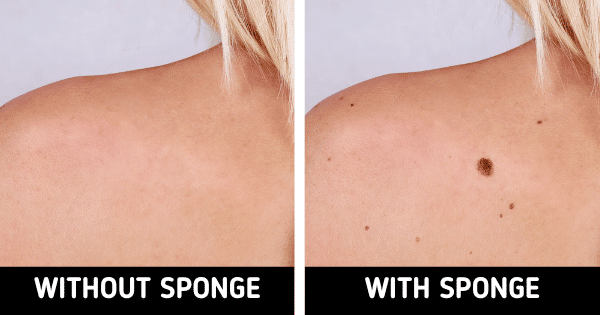A bath sponge, such as a loofah, is a popular addition to a relaxing shower routine. However, despite being all-natural and organic, using them daily may have unintended consequences and potentially harm your skin in the long run.
1. The skin might look clearer.
Contrary to their intended purpose of exfoliating and promoting smooth skin, a bath sponge can have the opposite effect. Their porous nature allows them to trap dead skin cells, providing a breeding ground for bacteria. Additionally, the constant moisture in the bathroom creates an ideal environment for fungal growth, increasing the risk of skin infections.
2. Not using a bath sponge may help prevent skin irritation.
While bath puffs and loofahs can effectively cleanse your skin, excessive and aggressive use may do more harm than good. The coarse fibers can be abrasive, potentially damaging your skin over time. Regular use may lead to skin irritation, increased sensitivity, and a reddish appearance.
3. Razor burns may heal faster.
Shaving your legs is a quick method to remove hair, but it often leads to painful razor burns. To prevent ingrown hairs, avoid using a bath sponge immediately after shaving. The bacteria in the loofah’s pores can enter your skin through micro-cuts, hindering the healing process.
4. Not using a bath sponge might keep certain unpleasant symptoms at bay.
Improperly drying your loofah sponge in a moist bathroom can breed harmful bacteria like E. coli. This exposure can result in unpleasant symptoms like stomach pain, nausea, and potential vomiting.
Do you use a bath sponge? Share your experience with us.





